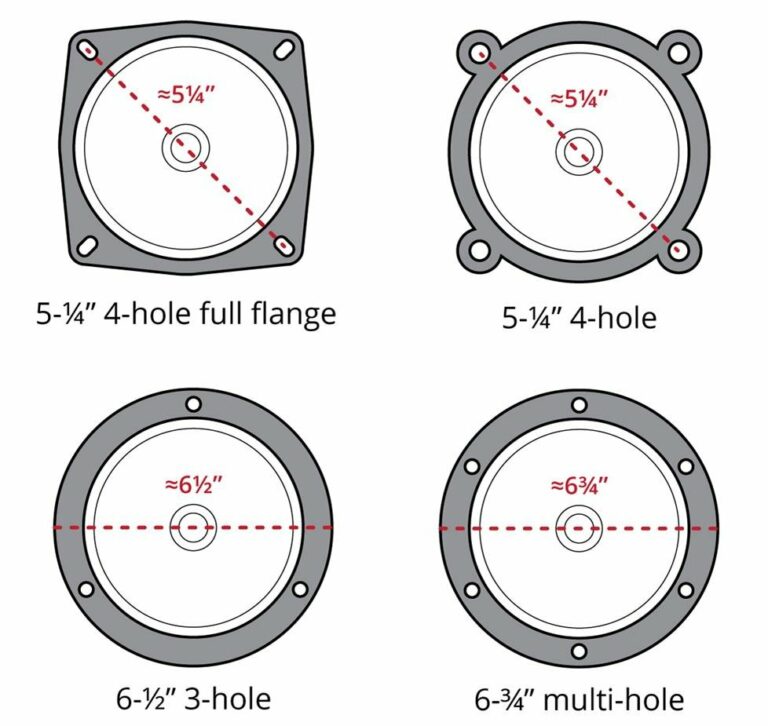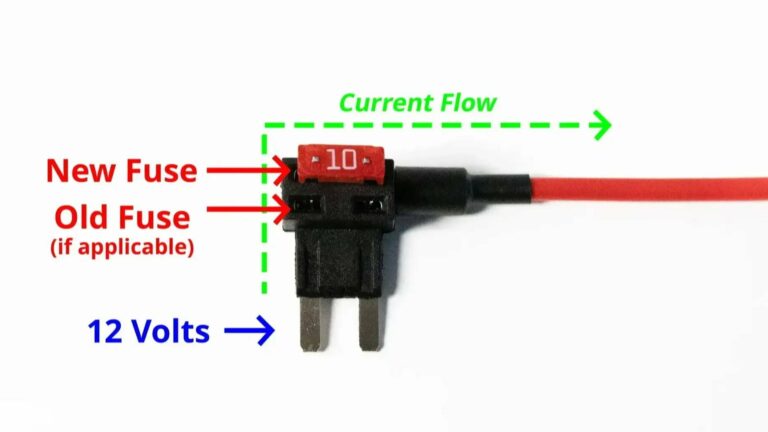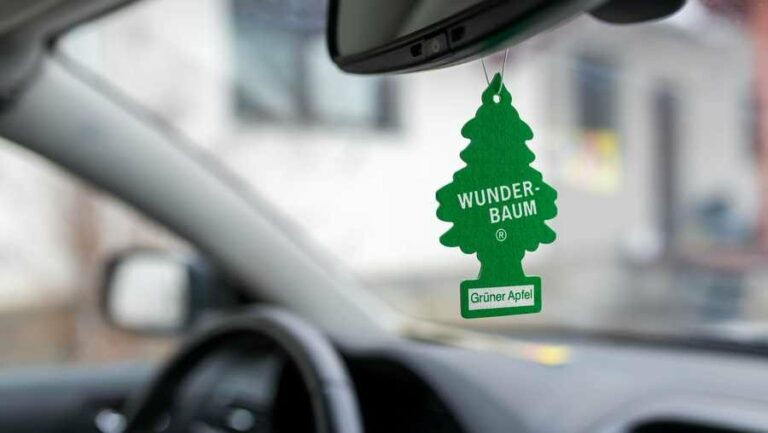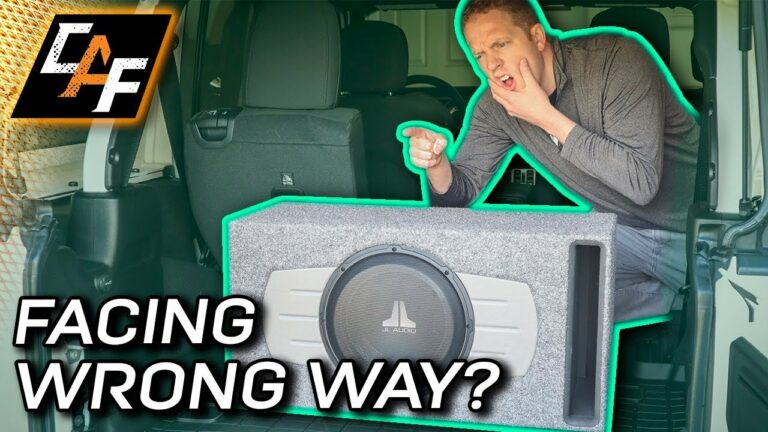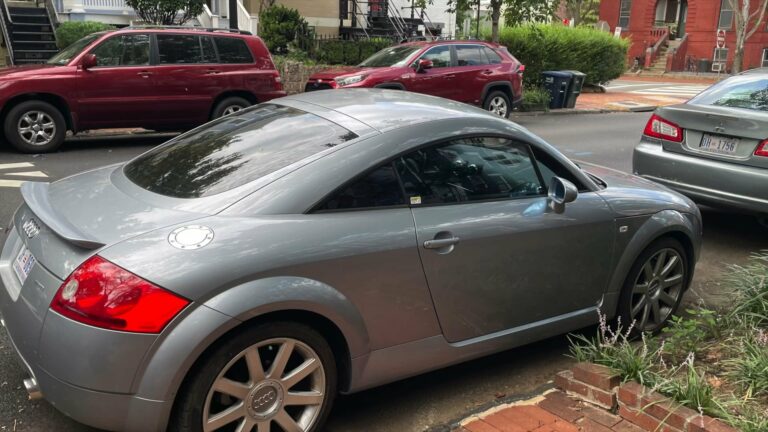How to Make Your Car Speakers Sound Better
How to Make Your Car Speakers Sound Better? If you’re craving richer, clearer sound when jamming out on the road, you’re in the right place. In this article, we’ll guide you through simple yet effective techniques on how to make your car speakers sound better.
No need to worry about spending a fortune or having extensive technical knowledge. From optimizing speaker placement to adjusting equalizer settings, we’ve got you covered. So, let’s dive right in and amp up your audio game!
How to Make Your Car Speakers Sound Better
Are you tired of your car speakers producing mediocre sound quality? Do you crave a better audio experience while driving? If so, you’re in luck! In this comprehensive guide, we will explore various techniques and tips to help you make your car speakers sound better. From simple adjustments to more advanced upgrades, we’ll cover everything you need to know to enhance your audio system. So, let’s dive right in and unlock the potential of your car speakers!
## 1. Position Your Speakers Properly
The placement of your car speakers plays a vital role in the overall sound quality. Here are some tips to ensure your speakers are positioned optimally:
– **Front Speakers:** Ideally, place the front speakers at ear level or slightly above to create a well-balanced soundstage. Aim them towards the listeners for better clarity and depth.
– **Rear Speakers:** If your car has rear speakers, aim them towards the back of the vehicle to create a surround sound effect. This can enhance the overall audio experience for all passengers.
– **Subwoofers:** Place your subwoofers in the trunk or towards the rear of the vehicle. This allows for better bass dispersion and prevents it from overpowering the other frequencies.
## 2. Soundproof Your Car
Reducing external noise and vibrations can significantly improve your audio quality. Here’s how you can soundproof your car:
– **Insulate Doors:** Install sound deadening material on your car doors to minimize road noise and rattling vibrations. This can greatly enhance the clarity of your audio system.
– **Add Carpet Padding:** Place carpet padding or foam under your car’s carpet to absorb road noise and reduce vibrations. This can improve the overall audio experience, especially for bass frequencies.
– **Seal Gaps:** Identify any gaps or holes in your car’s interior and seal them using soundproofing tape or silicone. This helps to prevent external noise from entering the cabin.
## 3. Upgrade Your Head Unit
The head unit, also known as the car stereo, is the heart of your audio system. Upgrading it can greatly improve the sound quality and functionality. Consider the following options:
– **Upgrade to a High-Quality Head Unit:** Invest in a head unit from reputable brands that offer advanced audio processing features, such as equalizers and time alignment. This allows you to fine-tune your sound to suit your preferences.
– **Opt for Apple CarPlay or Android Auto:** These technologies enable seamless integration with your smartphone, providing access to various music apps and navigation systems. They also offer improved audio processing capabilities.
– **Consider Digital Sound Processors (DSPs):** DSPs allow you to customize and optimize your car’s audio output. They offer advanced features like signal delays and equalization, helping you achieve a more accurate and immersive soundstage.
## 4. Choose High-Quality Speakers
The quality of your car speakers directly affects the sound reproduction. Upgrading to high-quality speakers can make a noticeable difference. Here’s what you should consider:
– **Component Speakers:** These systems consist of separate tweeters and woofers, providing better soundstage and imaging. They allow for more precise placement, resulting in improved audio quality.
– **Coaxial Speakers:** Coaxial speakers combine the tweeter and woofer into a single unit, making them easier to install. They’re a good option for those seeking a simple upgrade without major modifications.
– **Consider Speaker Materials:** Pay attention to the materials used in the construction of the speakers. High-quality materials like silk or textile dome tweeters and polypropylene cones often produce better sound.
## 5. Amplify Your Sound
Amplifiers provide additional power to your speakers, resulting in cleaner and louder audio. Consider the following when selecting an amplifier:
– **Match Power Ratings:** Ensure that the power output of your amplifier matches the power handling capability of your speakers. This prevents underpowering or overpowering, which can adversely affect sound quality.
– **Multi-Channel Amplifiers:** If you have a multi-speaker setup, consider a multi-channel amplifier. This allows you to power each speaker individually, resulting in better control and audio separation.
– **Subwoofer Amplifiers:** For those who enjoy deep bass, a dedicated subwoofer amplifier can provide the additional power needed to drive the low-frequency content, resulting in a fuller and more impactful bass response.
## 6. Install Sound Dampening Material
To further enhance the sound quality, consider adding sound dampening material in strategic areas of your car. Here are some suggestions:
– **Apply Sound Deadening Mat to Doors:** Adding sound deadening mat to your car doors reduces vibrating panels and improves the overall sound quality. This helps to minimize unwanted vibrations and distortion.
– **Line the Trunk with Sound Dampening Mat:** If you have subwoofers or amplifiers in your trunk, lining it with sound dampening material can prevent rattling and resonances, resulting in cleaner bass reproduction.
– **Consider Sound Dampening Sprays:** Sound dampening sprays can be applied to metal surfaces to reduce vibrations and improve sound quality. They are especially useful for areas that are not accessible with mat installations.
## 7. Optimize Speaker Wiring
Proper wiring techniques can significantly impact the performance of your car speakers. Follow these tips to optimize your speaker wiring:
– **Use High-Quality Speaker Wire:** Invest in good quality OFC (Oxygen-Free Copper) speaker wire with adequate gauge. This minimizes signal loss and ensures optimum power transfer to your speakers.
– **Shorten Wire Lengths:** Keep your speaker wire lengths as short as possible to minimize resistance and signal degradation. This is particularly crucial for high-power audio systems.
– **Separate Power and Speaker Cables:** When routing your wiring, keep the power cables separate from the speaker cables to prevent interference and improve overall audio performance.
## 8. Enhance Your Source Material
Even with the best audio system, the quality of your source material can make a significant difference. Consider the following tips to enhance your audio sources:
– **Stream High-Quality Music:** Whenever possible, opt for high-quality audio streaming services that offer higher bitrates and lossless audio formats. This ensures that the original audio content is not compromised.
– **Use Quality Audio Files:** If you prefer playing music files from physical media or USB drives, ensure that they are of high quality. Use lossless formats like FLAC or high-bitrate MP3 files for optimal sound reproduction.
– **Avoid Excessive Compression:** Beware of excessive audio compression. Some streaming services and radio stations heavily compress their audio to save bandwidth. Look for services that prioritize sound quality.
## 9. Tune Your Equalizer
A well-tuned equalizer can make a substantial difference in the sound quality of your car speakers. Here are some tips for tuning your equalizer:
– **Start with Flat Settings:** Reset your equalizer settings to flat or neutral before making adjustments. This ensures a baseline response to work with.
– **Make Small Adjustments:** Fine-tune your equalizer one band at a time, making small adjustments to avoid overcompensating. Listen to a variety of music genres to ensure a balanced sound across different frequencies.
– **Consider Professional Tuning:** If you find it challenging to achieve the desired sound signature, consider consulting a professional audio tuner. They have the expertise to optimize your system for the best possible sound.
## 10. Maintain and Upgrade Cables and Connectors
Often overlooked, cables and connectors can impact audio quality. Consider the following tips to ensure optimal connectivity:
– **Use Gold-Plated Connectors:** Gold-plated connectors provide better conductivity and corrosion resistance, resulting in improved signal transmission.
– **Keep Cables Secure and Insulated:** Ensure that your cables are properly insulated and securely fastened to prevent signal loss and interference caused by movement or vibrations.
– **Upgrade RCA Cables:** If your audio system uses RCA cables, consider upgrading to higher-quality cables with better shielding. This helps to minimize noise and ensures cleaner audio transmission.
Now that you have a wealth of information on making your car speakers sound better, it’s time to take action. Remember, achieving great sound in your car requires a combination of proper positioning, quality components, and meticulous tuning. With patience and a little experimentation, you’ll be able to unlock the full potential of your car audio system and enjoy a truly immersive audio experience on the road. So, go ahead, make those upgrades, and enjoy the ride with your new and improved car speakers!
Stereo settings to make your car speakers sound better
Frequently Asked Questions
How can I improve the sound quality of my car speakers?
To enhance the sound quality of your car speakers, you can start by ensuring that the speakers are properly installed and positioned for optimal performance. It is also important to use high-quality audio files and adjust the equalizer settings to suit your preferences. Adding sound-deadening materials to your car’s doors and upgrading your amplifier can further improve the overall sound experience. Regular maintenance, such as cleaning the speakers and checking the wiring connections, can also help maintain their performance.
Is upgrading my car speakers a good idea?
Upgrading your car speakers can significantly improve the audio quality and overall listening experience in your vehicle. Factory-installed speakers are often of lower quality, and an upgrade can provide clearer sound, better bass response, and improved fidelity. When choosing new speakers, make sure they are compatible with your car’s audio system and are designed to fit the speaker openings. Upgrading your speakers can be a worthwhile investment if you value high-quality audio during your car rides.
What is an amplifier and how does it improve the sound of car speakers?
An amplifier is a component that boosts the audio signal from your car’s stereo system to the speakers. By increasing the power sent to the speakers, an amplifier helps improve the overall sound quality and allows for higher volume levels without distortion. When choosing an amplifier, make sure it matches the power requirements of your speakers and is compatible with your car’s audio system. Adding an amplifier can significantly enhance the audio performance of your car speakers.
Do I need a subwoofer to improve the bass in my car’s audio system?
While not essential, a subwoofer can greatly enhance the bass response in your car’s audio system. Subwoofers are designed specifically to reproduce low-frequency sounds and can provide a deeper, more impactful bass experience. If you enjoy genres of music that heavily rely on bass, such as hip-hop or electronic music, adding a subwoofer can significantly improve the overall sound balance and make your car audio system more enjoyable.
Are there any equalizer settings I should adjust to make my car speakers sound better?
Adjusting the equalizer settings can help tailor the sound to your preferences and the acoustics of your car. Start by setting the equalizer to a neutral or flat position and then experiment with different frequencies to achieve the desired sound. Boosting or reducing specific frequencies can help compensate for any deficiencies in your speakers or the audio system. It is recommended to make small adjustments and listen to various types of music to find the optimal settings that suit your taste.
How can I reduce distortion in my car speakers?
To reduce distortion in your car speakers, make sure you are not overdriving them by setting the volume too high. Additionally, ensure that the speakers are properly installed and wired, as loose connections can cause distortion. Using high-quality audio files and avoiding low-quality recordings can also help minimize distortion. If distortion persists, you may consider upgrading your speakers or adding an amplifier to provide cleaner power and prevent distortion at higher volumes.
Final Thoughts
To make your car speakers sound better, follow these tips: first, invest in high-quality speakers that have a wide frequency range and can handle the power output of your car’s audio system. Next, properly position and install the speakers to optimize sound distribution. Additionally, consider soundproofing your car’s interior to reduce external noise interference. Adjusting the equalizer settings and experimenting with different audio formats can also enhance the sound quality. Finally, regularly clean and maintain your speakers to ensure optimal performance. By applying these techniques, you can significantly improve the sound of your car speakers.

